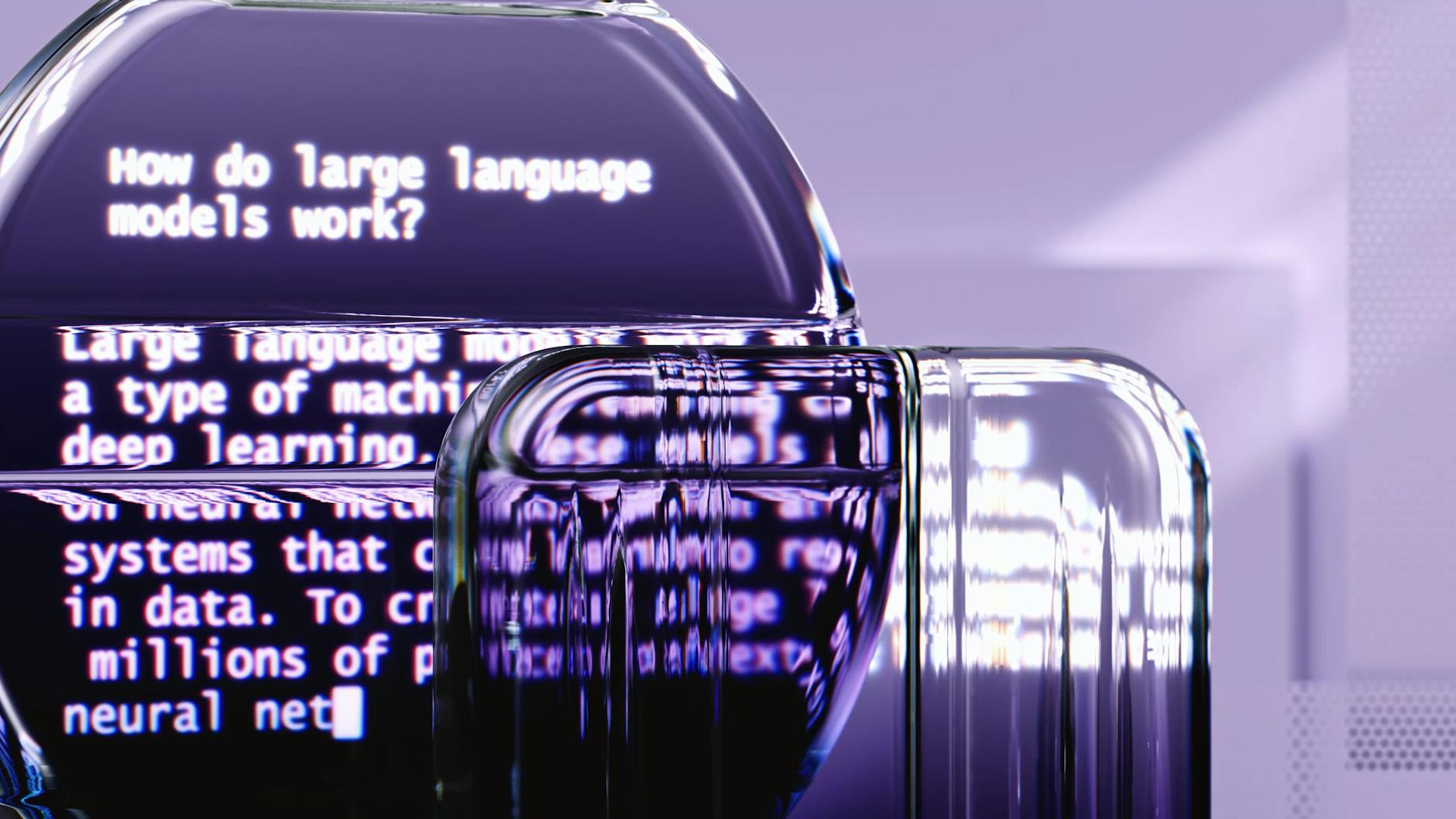
Artificial intelligence is transforming industries, and legal research is no exception. Today, AI is not just automating tasks; it’s enhancing decision-making and enabling deeper insights. The future promises even greater advancements, from faster case law analysis to tools tailored to specific legal challenges. For CEOs and decision-makers in manufacturing, understanding these innovations can guide better compliance and risk management strategies. AI in legal research isn’t just about time savings—it’s reshaping how professionals navigate complex legal landscapes.
Current Trends in AI Technology
Artificial intelligence is making significant advancements, influencing industries globally, including legal research. From automation to better integrations, AI technologies are reshaping how legal professionals work, boosting efficiency and accuracy. Here’s how key AI technologies are currently impacting legal research.
Machine Learning and Natural Language Processing
Machine Learning (ML) and Natural Language Processing (NLP) are pivotal in transforming legal research. These technologies allow AI to analyze massive amounts of case law, legal documents, and regulations. In a legal setting, NLP tools can interpret the context behind complex legal texts, making it easier for professionals to extract key insights.
For instance:
- ML algorithms predict case outcomes based on historical data.
- NLP tools summarize lengthy legal contracts into digestible information.
- Advanced AI systems can identify patterns in judicial decisions, assisting lawyers in formulating effective strategies.
These tools not only save time but also reduce the likelihood of human error, ensuring higher accuracy in legal interpretations. Learn more about emerging AI trends from this comprehensive guide.
Automation of Legal Research Processes
Legal research is often time-intensive, but automation tools are changing the game. With AI-powered platforms, research that took days can now be completed in hours. These tools can:
- Scan and categorize documents: AI streamlines the organization of case laws and statutes.
- Conduct predictive research: They provide forecasts on court decisions.
- Generate key insights: Some tools highlight trends in case law, aiding in dispute resolution.
The biggest advantage? Lawyers can now focus more on client interactions and strategic counseling. Firms adopting these innovations gain a competitive edge, particularly in industrial sectors prone to regulatory complexities.
Integration with Legal Databases
AI-driven tools are also revolutionizing the way legal databases are accessed and used. By integrating AI systems with existing legal databases, professionals can retrieve relevant cases, statutes, or regulations faster and with precision. It’s like having an intelligent assistant always ready to fetch exactly what you need.
Some features of AI-integrated databases include:
- Smart search capabilities: Locate nuanced information with minimal keywords.
- Real-time updates: Stay informed on legislative changes or judicial decisions instantly.
- Customizable filters: Tailor searches to fit specific industrial needs, such as environmental or labor laws.
For manufacturers and CEOs worrying about compliance, these integrations mean less time spent on legal due diligence and more on business growth. Discover more about AI advancements in legal processes by visiting this detailed article.
AI isn’t just a tool for efficiency; it’s redefining the way legal complexities are handled. With the current trajectory, it’s clear that these trends will continue to enhance the capabilities of legal professionals across industries.
The Role of AI in Legal Decision Making
Artificial intelligence is revolutionizing the legal profession, and its implications for decision-making processes cannot be understated. By analyzing vast quantities of data and applying advanced algorithms, AI is reshaping tasks that were once exclusively human. From predicting case outcomes to drafting complex legal documents, AI’s influence is undeniable. Let’s explore two key areas of its impact.
Predictive Analytics in Law: Forecasting Case Outcomes
Predictive analytics powered by AI offers legal professionals powerful tools for forecasting case outcomes. By analyzing historical case data and judicial trends, AI can provide insights that were previously difficult to discern. These predictions aren’t just educated guesses—they are grounded in reliable, data-driven analysis.
Here’s how this works:
- Algorithmic Modeling: AI tools use past case data to identify patterns in judicial decisions. For example, they can analyze hundreds of past rulings to determine how specific factors, such as case type or represented parties, influenced outcomes.
- Probabilistic Forecasting: After gathering data, AI generates statistical probabilities. Attorneys then decide how to approach cases with the highest likelihood of success.
- Strategic Benefits: Lawyers can adapt their strategies, focusing resources on cases with favorable predicted outcomes while allocating lower priority to less promising cases.
Predictive analytics allows attorneys to anticipate client needs and assess risks with greater confidence. This evolution is especially useful for industries like manufacturing, where complex legal regulations often intersect with business operations. To better understand how AI integrates with legal tools, check out this insightful article, How is AI Changing the Legal Profession?.
AI-Assisted Drafting of Legal Documents
AI is not just assisting in courtrooms—it’s transforming how legal documents are created and reviewed. The technology can analyze, draft, and even refine legal documents with unmatched precision. Automating repetitive, time-consuming tasks allows legal teams to focus on higher-value work.
Key advantages of AI-assisted drafting include:
- Faster Document Creation: AI systems can convert input data into polished, formatted legal documents within minutes.
- Error Reduction: Through machine learning, AI adapts to minimize discrepancies or errors in contracts and filings.
- Enhanced Review Processes: AI quickly identifies inconsistencies, missing clauses, or compliance issues. This ensures documents adhere to the latest legal standards.
- Custom Templates: Already tailored to specific industries, such as environmental compliance contracts for manufacturers.
For manufacturers navigating large volumes of contracts or regulatory paperwork, this functionality is invaluable. AI drafting tools don’t just improve efficiency; they ensure accuracy and reduce legal risks. For more on how technology benefits legal processes, explore 7 Ways Artificial Intelligence Can Benefit Your Law Firm.

Photo by Mikhail Nilov.
These tools don’t replace an attorney’s judgment. Instead, they amplify capabilities, ensuring that teams can focus on innovation and problem-solving rather than clerical tasks. Staying efficient and accurate is critical, particularly in fast-moving sectors like procurement, where compliance is key. Delve further into AI’s relationship with decision-making in procurement through The Impact of AI on Procurement.
AI is changing the way law professionals think about preparation, accuracy, and opportunity. The ability to rapidly process information and draft documents is no longer optional—it’s becoming an industry standard. Stay tuned for more on this evolving topic.
Challenges and Limitations of AI in Legal Research
AI has revolutionized the legal industry by improving efficiency and accuracy. However, the integration of AI into legal research comes with its own set of challenges. These hurdles highlight the complexity of legal proceedings and the caution required when adopting new technology.
Data Privacy Concerns: Explore the implications of AI on client confidentiality.
Legal work is built on a foundation of confidentiality. Lawyers are entrusted with highly sensitive client information, and AI can complicate these obligations. The use of AI tools, particularly those reliant on cloud computing or external servers, introduces potential risks.
Key concerns include:
- Data Breaches: AI databases can be targeted for hacking. Sensitive client details may be exposed.
- Third-Party Access: External vendors managing AI systems might inadvertently gain access to private legal data.
- Regulatory Compliance: Many jurisdictions have stringent rules for handling client data. AI systems must align with these laws to avoid penalties.
Prioritizing data security is essential for law firms adopting AI. For more insights into potential privacy challenges in legal operations, visit The Limitations of AI in Legal Operations.
Accuracy and Reliability Issues: Assess the dependency on AI’s accuracy in legal decisions.
AI systems rely on historical data to make predictions or generate results. This dependence on past cases can lead to accuracy issues, especially when the data set is limited or biased. Mistakes in legal decisions can have far-reaching consequences.
Consider these points:
- Bias in Algorithms: Historical data often contains inherent biases. AI may replicate or amplify these biases, leading to unfair outcomes.
- Complex Legal Nuances: AI cannot fully comprehend the subtleties of legal arguments, making it unsuitable for unprecedented cases.
- Overreliance on Technology: Legal professionals might become too dependent on AI, risking a decline in critical thinking and traditional research skills.
Ensuring the reliability of AI in legal applications requires regular auditing and refining of algorithms. Learn more about the risks AI presents in the legal field from What Are the Risks of AI in Law Firms?.
AI in legal research presents a double-edged sword—it enhances productivity but requires careful oversight to avoid pitfalls. Addressing these challenges is vital for effective implementation.

Photo by Google DeepMind.
Future Prospects for AI in Legal Research
Artificial Intelligence is rapidly transforming the legal landscape. It’s not just automating repetitive tasks but enhancing the way research and analysis are conducted. As AI evolves, its potential applications in legal studies, compliance, and even courtroom strategies are expanding. In this section, we’ll focus on how AI training is evolving and how it could create new opportunities in the legal profession.
Evolution of AI Training on Legal Data
AI has made significant advancements, particularly in its ability to be trained on vast, specialized datasets. One of the most exciting developments is its growing proficiency with legal-specific data. Early AI systems were limited to generalized tasks, but the latest tools can comprehend and even predict outcomes based on nuanced legal materials.
Here’s how AI training is expanding:
- Specialized Legal Corpora: AI models are now trained using databases of case law, statutes, and academic legal literature. This enables them to “understand” legal language better.
- Contextual Analysis: With Natural Language Processing (NLP) advancements, AI can interpret the intricate context of legal documents. This goes beyond keywords, tapping into the intent behind clauses, rulings, and motions.
- Adaptive Learning: AI tools are becoming more sophisticated, refining their ability to learn from user feedback and evolving legal precedents.
For example, platforms that integrate AI with legal research tools are showing remarkable results. They can pinpoint precedents that even experienced attorneys might overlook, offering a new dimension of predictive analysis. For a closer look at the ongoing impact of AI in the legal profession, read AI & the Future of the Legal Profession.
Potential Job Creation in the Legal Field
Contrary to the fear of job losses, AI has the potential to create new roles in the legal sector. While some traditional tasks may become automated, technology is opening up a myriad of opportunities for legal professionals to engage in higher-value work.
Here are some emerging roles:
- Legal Engineers: Experts who develop and maintain AI systems to solve legal issues.
- Data Compliance Specialists: Professionals who oversee compliance with regulations as data-driven AI systems expand.
- AI Prompt Engineers: Specialists who write and fine-tune prompts for AI tools to ensure accuracy in legal research.
Think of these as the “new architects” of the legal landscape. These roles don’t just support AI—they redefine how the legal sector functions, aligning it more closely with emerging industrial needs. For example, Harvard Law’s Discussion on AI Transforming Legal Work offers compelling insights into how these roles could take shape.
Additionally, AI tools are enabling members of the legal profession to focus more on complex tasks, reducing administrative duties. For industries like manufacturing, where compliance and legal issues intersect, this is not just beneficial—it’s essential to staying competitive. To explore more about technology-driven advancements in legal roles, check out The Future of Artificial Intelligence and Legal Careers.

Photo by Google DeepMind.
AI’s ability to transform legal studies and create new career paths is undeniable. This isn’t about robots replacing humans; it’s about enabling the legal sector to be more efficient, accurate, and innovative.
Conclusion: Navigating the Road Ahead for AI in Legal Research
The future of AI in legal research is brimming with possibilities. From predictive analytics to AI-assisted drafting, these tools are reshaping how legal professionals manage their work. Despite the challenges of ensuring accuracy, data privacy, and ethical considerations, the potential for innovation is undeniable. As AI grows more adept at handling complex legal data, its impact will only become more profound.
To understand more about AI’s role in the evolving legal profession, check out AI & the Future of the Legal Profession. This includes insights into how automation is creating opportunities for new job roles like legal engineers and AI specialists.
Additionally, Harvard Law’s Expert Take on AI Transformations dives into deeper aspects of the transition from generalized AI to systems specifically trained on legal data.
The road ahead isn’t merely about technology but also reshaping the way professionals think and work in legal environments. Stay informed on these advancements, as they will undoubtedly impact future decision-making processes in industries like manufacturing, where legal precision is critical.